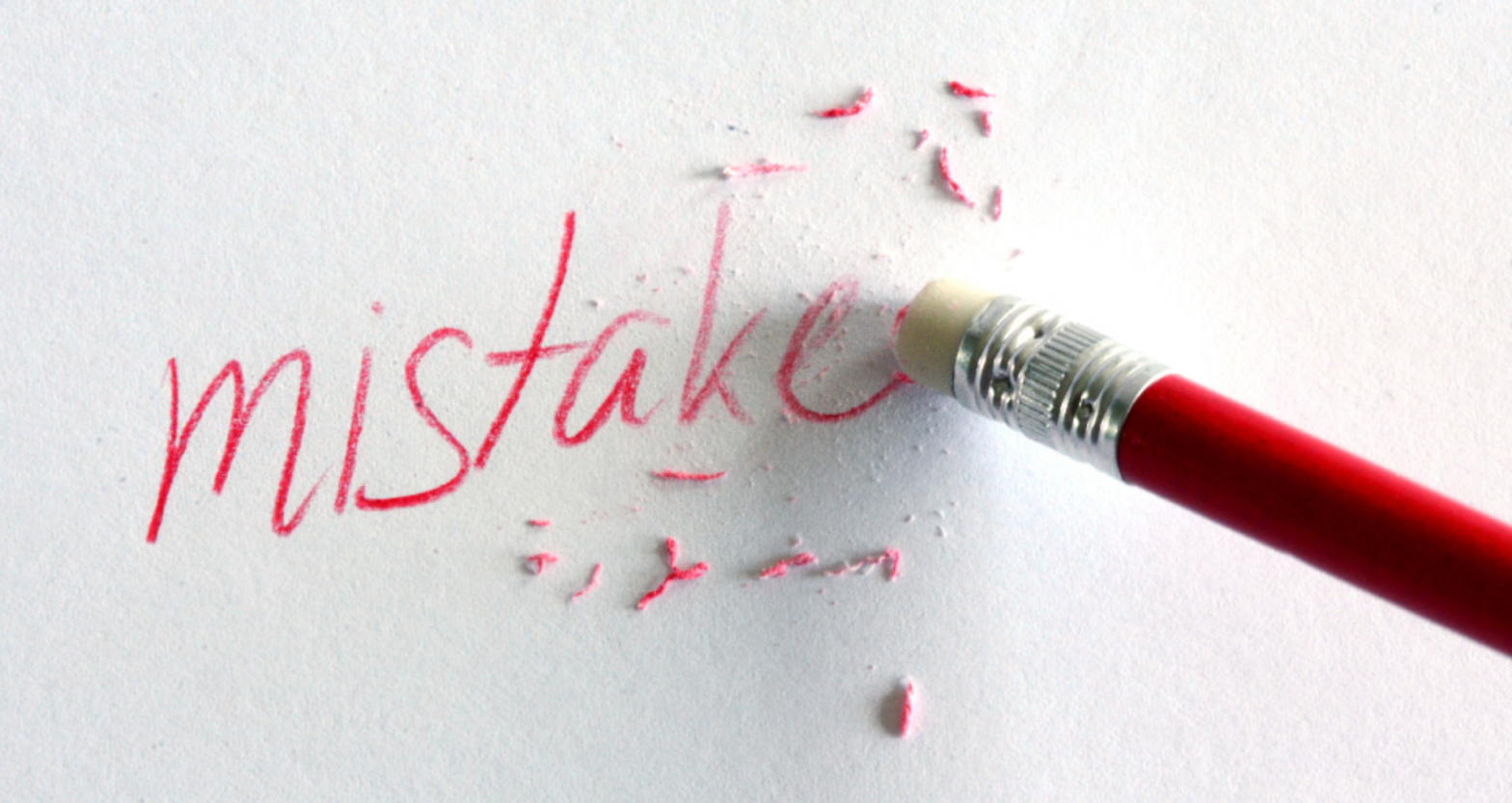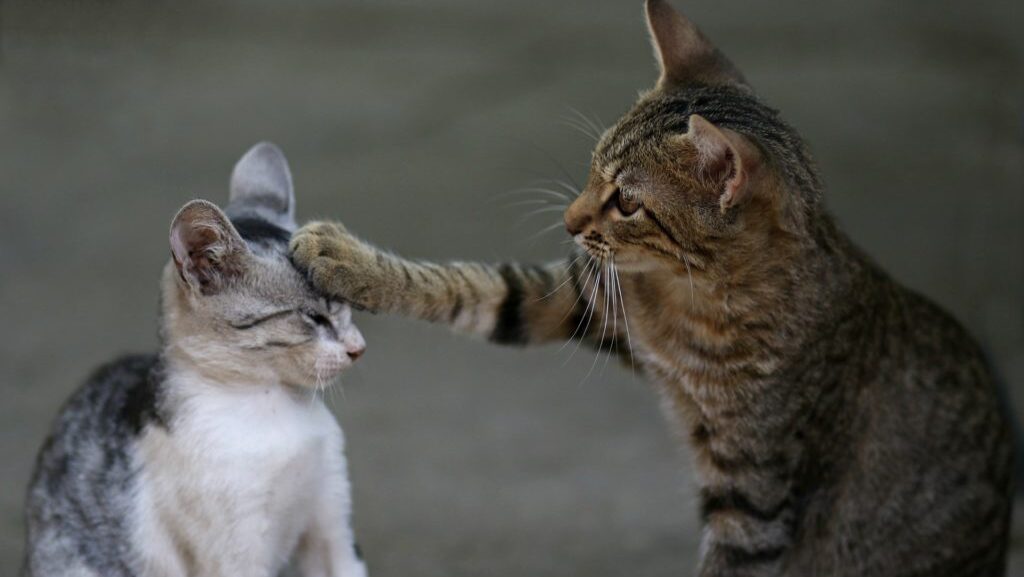My previous post, “The Problem with Perfection,” unraveled some of the mythology and beliefs about notions of perfection that limit and impede many people’s lives. They come from misinformed beliefs that detour, if not ruin lives. The concept of mistakes is the next step in our consideration of a life well lived.
The anxiety about making mistakes is very much rooted in the old paradigm of being as opposed to becoming. This worldview has us see ourselves as fixed and static, not as flowing and changing. This perspective roots us in the fear of making mistakes. The process of becoming is forgiving. In the flow of becoming we are no longer mired in the hardship of fear, insecurity or the notions of mistakes.
Most people try to avoid making mistakes, and some people experience a significant amount of apprehension and anxiety about committing mistakes. We labor over making decisions out of this fear, which tends to paralyze us. Such individuals labor over making decisions, significant or insignificant. People who struggle with making decisions tend to be avoidant, for the longer they can procrastinate the decision, the more they protect themselves from the illusion of mistakes. Yet, we don’t usually stop to consider exactly what constitutes a mistake.
Interested in bespoke marriage and relationship counseling from Mel Schwartz? Reach out!
Generally, a mistake is a decision or an action – or lack thereof – that we fear we’ll come to regret. Mistakes usually cause some degree of pain, loss, or struggle. Certainly we might agree that we don’t care for the consequences and hence we call it a mistake. The irony is that these events that we try so hard to avoid are sometimes precisely what we need to experience. Ordinarily, growth doesn’t occur without some of those challenging feelings we try so hard to avoid.
Many times I’ve heard people speak of their failed marriages as mistakes that they terminated in divorce. Yet, without such a difficult experience neither person would have had the opportunity to discover deeper truths about themselves. There is a personal evolution that occurs when we become accountable for whom we chose to marry. Through the painful experience, there is abundant opportunity to learn and grow. These insights, borne out of what we call mistakes, are necessary for our psychological, emotional and spiritual growth. They are also a fundamental part of our learning process.
If we look at our lives as a perpetual unfolding – a never-ending process of becoming – we might consider that we what call a mistake is simply a snapshot that we freeze in time. Yet the flow of life doesn’t freeze but cascades on, as long as our perspective enables us to see it as such. The perfectionist of course has an acutely difficult time with what I’m proposing as they remain anchored in the old fearful dogma.
As one door closes, another opens
The fear of making a mistake impacts not only our personal relations but also our jobs, careers and what otherwise might be inconsequential decisions. The “mistakes” made in the workplace may result in financial loss or even termination. An investment mistake causes loss of capital. This undoubtedly causes upheaval and stress. But as surely as a door closes, another one opens. The objective is to not stay mired in the loss but to look for the new door that is opening. The opportunity is always there if we can get out of our own way and see it. Invariably, crisis creates new opportunities. The decision that we might regret is only a temporary snapshot of a moment in time; whether we cement it into an eternity is our choice.
The avoidance of pain and, at times, loss or sadness, limits our experience. These travails are necessary to propel us toward greater growth and awareness. Our beliefs about mistakes and failure limit us from moving into a deeper and richer relationship with life. The fear of making such errors keeps us trapped in the very narrow comfort zone of the known. Yet, it’s the movement into that unknown that catalyzes our personal evolution.
A mistake is an event, the full benefit of which we have not come to realize.
The fear of making a mistake can be utterly imprisoning. Who gets to be the judge of what constitutes a mistake? From a spiritual perspective it might be argued that there is no such thing as a mistake. The very notion of mistake produces a reaction that induces fear and conformity. In this state we tend to dishonor our intuition as our inner voice becomes stilled and we choose the safer path. From this belief, predictability is cherished and uncertainty avoided. I should note that I’m not suggesting that driving while intoxicated is a sane decision, just as leaving a baby unattended would be unconscionable. I wouldn’t regard such acts as mistakes, but as breakdowns in reasonable, sound, or ethical behavior.
Anxiety about mistakes tends to have us surrender to the false comfort of what we think are the voices and opinions of others. These are the voices that instruct us about the proper choices. This tendency leaves us trapped in the orbit of consensus opinion. When we live in such a manner, we lose the creative, joyful spirit that allows us to more fully engage life.
What do we mean by failure?
The concept of a mistake is tied to the larger notion of failure. Just as with the word mistake, I would offer that there really is no such thing as failure. Imagine watching a toddler struggling to take their first steps, only to fall. How ridiculous would it be for us to proclaim that they failed? They simply haven’t yet mastered the skill of walking. Success has not yet been reached. It is altogether human to struggle toward what we’re trying to achieve. To refer to this process as failure is very destructive and self-defeating. The notion of failure is simply a belief that mind has created in our tendency to measure. It has no virtual reality unto itself. In other words, we made it up. The construct of failure is intrinsically rooted in the mechanistic paradigm. A machine may falter or fail, yet we have created a reversal of anthropomorphism when we have imbued machine-like qualities upon ourselves. The human has become as the machine.
It is in our life’s purpose to be explorative and to expand outward. If you are excited about new experience and opportunities for growth, then you don’t likely pay much attention to the concept of mistake. On the other hand, if you avoid such movement, you are likely living with the fear of mistake. As such, you’re prohibited by the defining boundary of your familiar zone.
When we find ourselves terrorized by thoughts of mistakes, we lose the opportunity to live more fully. There is never a single correct decision or pathway. Constructs such as mistakes and failure block us from the richer and more rewarding texture of life’s possibilities. Liberating ourselves from this fear enables our lives to unfold with greater purpose. Mistakes and failure are cultural constructs embroidered upon us by our personal biography and our larger worldview. Embracing a universe, which is participatory, inseparable and flowing eases the burden of such constructs. From this new vantage, we may embrace the flow of life and ease the tyranny of fearful thinking.
Rather than asking yourself, “Could this be a mistake?” you might inquire, “Would this be in my authentic path?” Authenticity doesn’t honor fear or the construct of mistakes but emphasizes living in our truth, free of concerns of judgment. Fear of making mistakes is typically indicative of our sensitivity to what we think others think of us – a very circuitous and tentative way to live our lives, I’d think. What do you think?
More from Mel…





Mel, I encourage you to do a TED talk. 🙂
Tom
Thanks Tom, I’ll look into your suggestion.
However fear of a mistake my recognise the potentially serious consequences arising from a certain result. As a result it may determines a course of action and may confine a person.
Further a person may fear failure which is restrictive & genuinely not know what to do – such conservatism need not be negative.
Fantastic read; I thoroughly enjoyed it! This is exactly how I try to live my life. A short summation of my philosophy is: No regrets, everything happens for a reason! When you are mature enough to temporarily remove yourself from situations and circumstances, you are able to see not necessarily the ‘why’ but you can almost always ‘how’. By that I mean you may never know why something happened but if you have a positive outlook on life you can always figure out what good came of it. Just my two cents.
Hi Maurice,
Glad this post spoke to you. Where do you live?
I stumbled on your website and blog because I Googled “Who Am I?” You heard me…I literally GOOGLED a rhetorical question. That gives you some idea of where I am in my life. I’m newly separated – for the fourth time in eight years – and this time a divorce is imminent. I’m almost 55, well-educated, successful…from the outside the whole package is there. Inside? Well, I GOOGLED “Who Am I?” if that tells you anything :-). I absolutely love what you have to say. I’ve read all kinds of things that say I need to figure out who Vicky is before I move on. Take time to know who I am before I live. Well, shoot. I’m moving on and figuring it out as I go.
Hi Vicky,
Yes the key is to envision yourself as an evolving and unfolding process, not as a fixed identity. Enjoy the ride.
Mel
Vicky,
The energy around “I am almost 55” sounded strongly like a wail about being old.
I assure you age, all of it, is a state of mind. If you would see yourself as beginning a grand adventure that is going to lead you to the most amazing places you will ever go, places you have so far not even imagined it will serve you well. If you can find a place of child-like wonder for your coming journey you will find yourself feeling and looking younger and being energized for what is ahead of you.
I can also assure you that as you discover who you are you will love yourself more than you have ever loved yourself and that is the absolute best thing you can do for yourself. Can’t really love others until you love you.
Most folks forget the “as yourself” part in the “love your neighbors” quote. Most treat their neighbors better than themselves. They don’t look at their neighbor and look for flaws yet they will look in the mirror at themselves focused upon identifying any new flaws that may have appeared. Begin looking for the beauty. It is there, in everyone and the more you see it yourself the more others will see it as it will shine forth from within.
Enjoy your journey.
Hi Vicky,
Just let your process unfold and don’t hold on too tightly. Emergence is subtle but powerful. Enjoy.
Hi Vicky,
I am “only” 29 and I to stumbled upon this blog by googleing “who am I”. The way I see it, you should be proud of your self that you are willing to take the first step to finding yourself. Even if that first step is googleing a rhetorical question.
Hi Mel:
I am very much enjoying the discussion you initiated on this subject on Linked In.
What a fascinating question!
Thanks Rob,
I’m pleased you’ve enjoyed it.
Mel